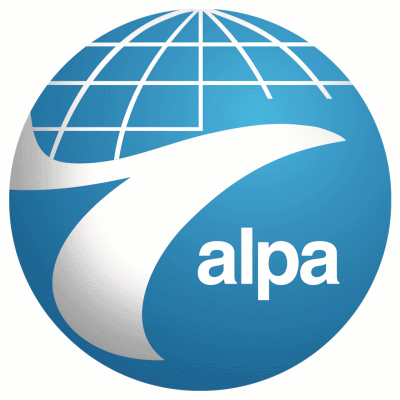Fri, Mar 31, 2017
Calls On Administration To Exempt Aviation Safety, Security Regulations From 'Two For One' Executive Order
Air Line Pilots Association, Int’l (ALPA) president Capt. Tim Canoll has called on President Donald Trump to exempt aviation safety and security regulations from the administration’s “two for one” executive order. In remarks to industry experts at ALPA’s Aviation Security Conference, Capt. Canoll urged the administration to take action by allowing aviation safety and security improvements to continue to advance through the regulatory process.

An executive order signed by President Trump on January 30 states: "It is important that for every one new regulation issued, at least two prior regulations be identified for elimination, and that the cost of planned regulations be prudently managed and controlled through a budgeting process."
“When it comes to aviation safety and security, we should never apply a cookie-cutter policy. It’s too risky and it invites trouble,” said Capt. Canoll. “We certainly won’t be able to tolerate necessary regulations being sidelined because of this order. The administration needs to take action now by exempting aviation safety and security rules.”
The conference also featured in-depth discussions by aviation stakeholders on emerging issues and collaborative ways to advance the safety and security of North America’s air transport system.
TSA acting administrator Dr. Huban A. Gowadia, National Counterterrorism Center Deputy Director John Mulligan, and chair of the Transportation Security subcommittee of the House Homeland Security Committee Congressman John Katko joined ALPA leaders, experienced pilots, and other industry experts for discussions on the numerous, ongoing efforts to secure our skies.
Panel discussions focused on important issues facing aviation security today:
- Identifying concerns regarding the increase of unmanned aircraft systems in the national airspace and emerging detection and mitigation efforts;
- Evaluating security threats facing all-cargo operations and what can be done to ensure that gaps in cargo operations are identified and mitigated as quickly as possible;
- The importance and future of the Federal Flight Deck Officer program; and
- Cybersecurity policies, procedures, and risk mitigations that are needed to ensure aircraft do not become the victims of cyber-related accidents or incidents.
“Enhancing aviation security is a dynamic process that must be informed by new discoveries, technological improvements, and procedural enhancements—in short, it must embrace constant innovation,” added Canoll. “We know from history that air transportation plays an integral role in national security. We look forward to working with the Trump administration, and specifically the Department of Homeland Security and the Transportation Security Administration, to advance what we believe to be our shared goals of fostering a secure, safe, and efficient air transportation system.”
(Source: ALPA news release)
More News
Terminal Radar Service Area Airspace surrounding designated airports wherein ATC provides radar vectoring, sequencing, and separation on a full-time basis for all IFR and participa>[...]
Very High Frequency (VHF) The frequency band between 30 and 300 MHz. Portions of this band, 108 to 118 MHz, are used for certain NAVAIDs; 118 to 136 MHz are used for civil air/grou>[...]
“From approximately November 2021 through January 2022, Britton-Harr, acting on behalf of AeroVanti, entered into lease-purchase agreements for five Piaggio-manufactured airc>[...]
Also: Virtual FLRAA Prototype, IFR-Capable Autonomous A/C, NS-32 Crew, Golden Dome Missile Defense Bombardier announced that the first production Global 8000 successfully completed>[...]
Aero Linx: The 1-26 Association (Schweizer) The Association’s goal is to foster the helpfulness, the camaraderie, and the opportunity for head-to-head competition that is fou>[...]
 ANN's Daily Aero-Term (05.29.25): Terminal Radar Service Area
ANN's Daily Aero-Term (05.29.25): Terminal Radar Service Area ANN's Daily Aero-Term (05.30.25): Very High Frequency (VHF)
ANN's Daily Aero-Term (05.30.25): Very High Frequency (VHF) Aero-News: Quote of the Day (05.30.25)
Aero-News: Quote of the Day (05.30.25) Airborne 05.23.25: Global 8000, Qatar B747 Accepted, Aviation Merit Badge
Airborne 05.23.25: Global 8000, Qatar B747 Accepted, Aviation Merit Badge ANN's Daily Aero-Linx (05.30.25)
ANN's Daily Aero-Linx (05.30.25)



